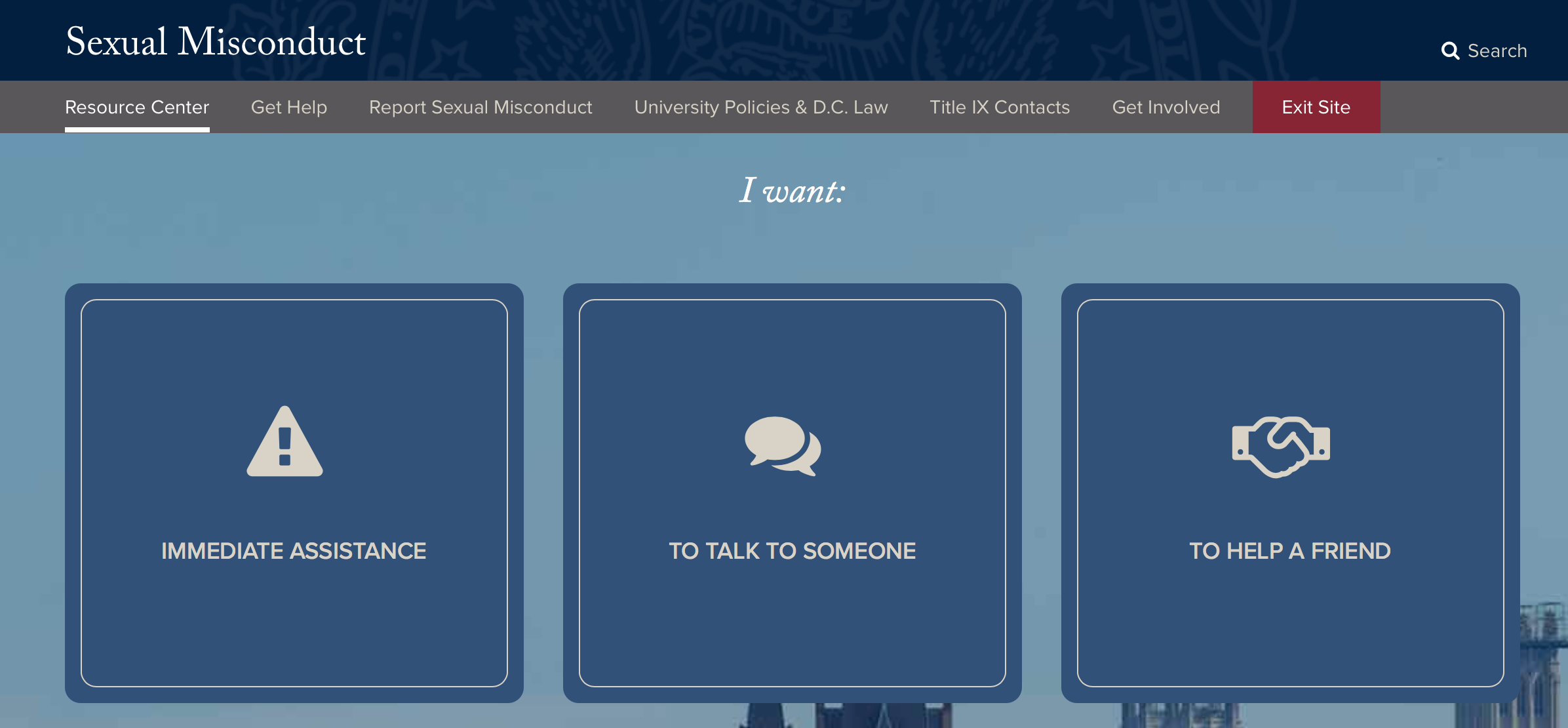Georgetown University announced two new online resources that will be available for students to report sexual misconduct on campus. On Jan. 10, Rosemary Kilkenny, vice president for institutional diversity, equity and affirmative action, and Laura Cutway, the university’s Title IX coordinator, detailed the new online resource center and the online reporting form in a university-wide email.
On the online resource center website, sexualassault.georgetown.edu, you can report an incident, learn relevant terms and definitions, seek immediate help, and assist friends in relation to sexual assault, harassment, or misconduct. Through this service, survivors can also speak with professionals, including professionals in the Health Education Services, counselors, staff in the Women’s and LGBT Centers, GUPD officers, Title IX Coordinators, and more. The website also provides details on D. C. sexual assault laws and Title XI regulations followed by Georgetown.
The second new feature, the online reporting form, allows survivors to file sexual assault incidents directly on the website. Nina Young (SFS ’19), director of GUSA’s coalition on sexual assault and student safety, encourages victims to utilize the new service.
“Do it,” she wrote of the new sexual harassment form in an email to the Voice.
Young commented that Georgetown has improved its handling of sexual misconduct on campus in recent years.
“These new tools are designed to ensure that all members of our community know where to get help and how to file a report of sexual misconduct,” Kilkenny and Cutway wrote.
The Institutional Diversity, Equity and Affirmative Action office’s efforts parallel those of President DeGioia last year, when he emphasized Georgetown’s dedication to investigating sexual assault on campus. In his September 2017 statement, he said the university’s commitment to increasing bystander training for students, expanding the Health Education Services staff, and working with student groups to facilitate a more inclusive social environment.
These changes came in response to the 2016 campus-wide Sexual Assault and Misconduct Climate Survey which concluded that, “among female undergraduates, 31.0% report having experienced non-consensual sexual contact as a result of physical force or incapacitation since entering Georgetown.” By providing more easily accessible reporting measures, the university hopes to help remediate the prevalent issue on campus.
“Such reporting helps ensure that survivors/victims of sexual misconduct understand their options and are made aware of available support and resources,” Kilkenny and Cutway wrote.
These services allow for Georgetown’s Title IX office to maintain awareness of sexual assault on campus. Even with these newly established programs such as these, Kilkenny and Cutway noted the university is not done with addressing sexual assault on campus.
“Reporting can… help the University monitor trends and patterns, to more effectively prevent and respond to sexual misconduct and promote a safe campus environment,” Kilkenny and Cutway wrote. “The University will continue to focus on education and prevention, support for survivors and those impacted by sexual assault and misconduct, and prompt and equitable response processes.”






